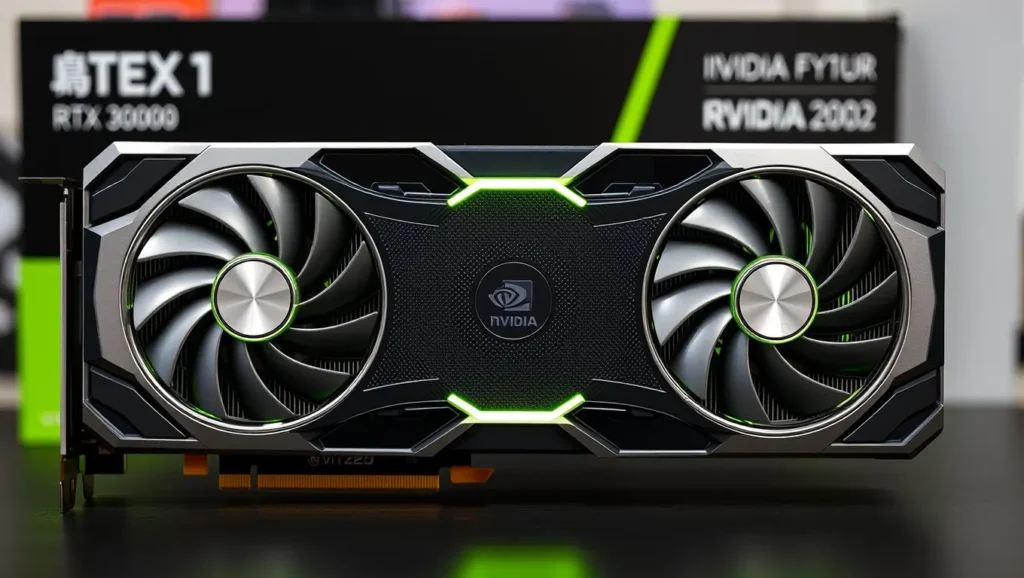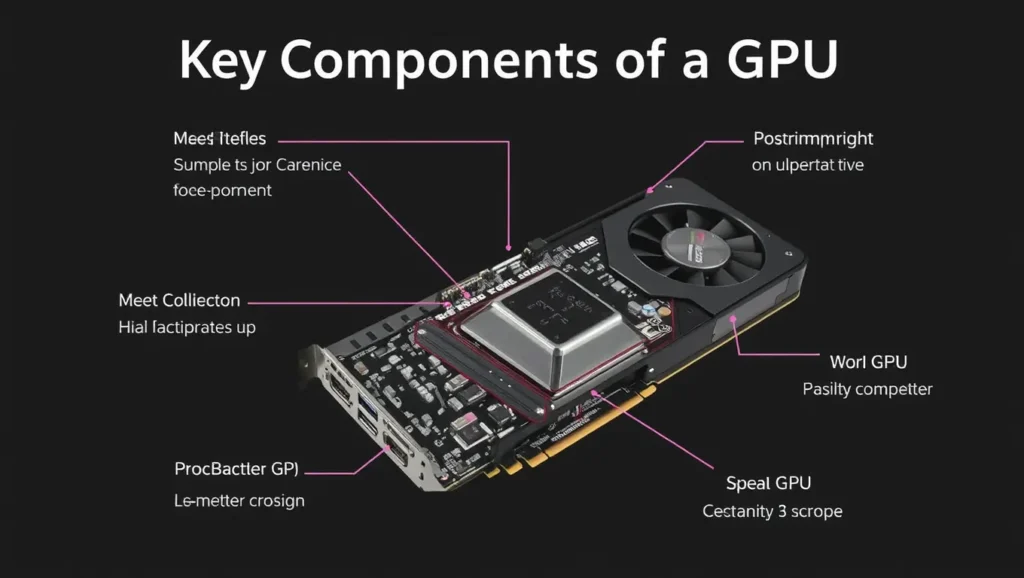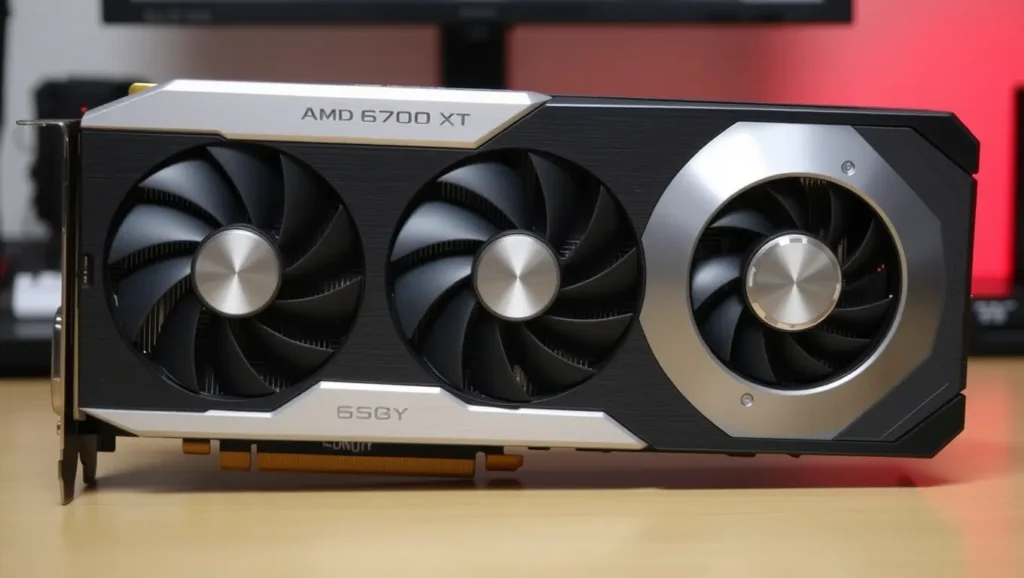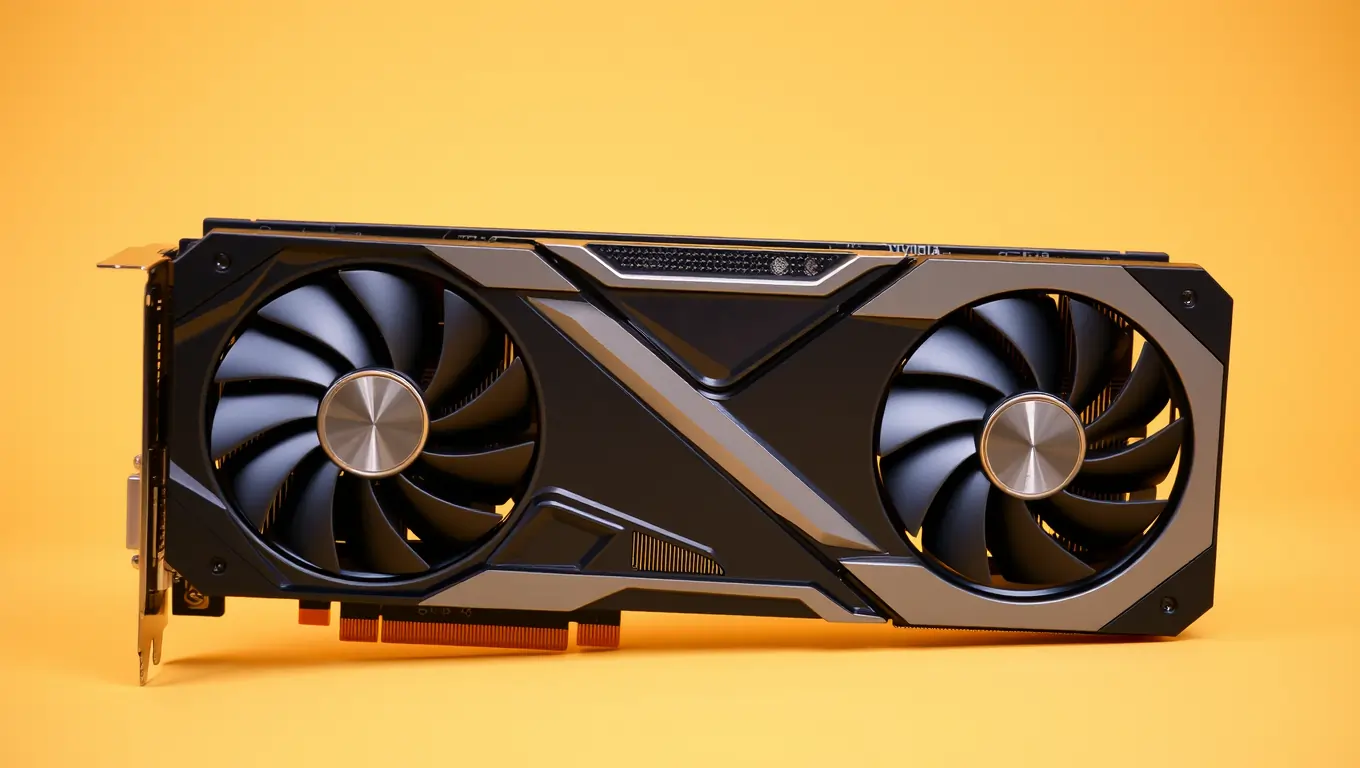Introduction
How long will your GPU last? If you’re a gamer or a professional relying on powerful graphics, this question has probably crossed your mind. On average, a GPU is expected to last between 3 to 5 years, but what if you could extend that lifespan? Graphics cards are one of the most vital components in your system, but like any hardware, they wear out over time.
In this article, we’ll explore the factors that affect GPU lifespan and how you can maximize its longevity to save money and boost performance.
Understanding GPU Lifespan
What is a GPU Life?
A Graphics Processing Unit (GPU) is the brain behind your computer’s graphical output, handling complex calculations required for rendering images, videos, and gaming. Whether it’s rendering lifelike gaming environments or processing intricate 3D designs, the GPU is critical for any visual task on your computer.

Average Lifespan of a GPU
Most GPUs are designed to last between 3 to 5 years, depending on several factors like usage patterns and maintenance. While manufacturers ensure a solid build, components naturally degrade over time due to wear and tear, making it essential to understand what affects this GPU lifespan.
Factors Affecting GPU Lifespan
- Environmental Factors: Your GPU is highly sensitive to external factors like temperature, humidity, and dust. High temperatures can strain components, while dust buildup can block airflow, causing overheating.
- Usage Patterns: The more intensively you use your GPU, the quicker it will wear down. Gaming, professional video editing, and especially cryptocurrency mining put a heavy load on GPUs, shortening their life expectancy.
- Maintenance Practices: Regular cleaning and applying fresh thermal paste ensure that your GPU doesn’t overheat, improving its longevity.
Technical Analysis of GPU Components
Key Components of a GPU

Understanding the architecture of a GPU helps in extending its life. A GPU consists of:
- Cores: Handle multiple tasks at once, crucial for parallel processing.
- Memory: Stores data temporarily for fast access.
- Cooling Systems: Maintain proper temperature to avoid overheating.
Impact of Different GPU Brands and Models
When comparing the GPU lifespan of Nvidia and AMD GPUs, differences are minimal. However, Nvidia GPUs generally offer better thermal management, which can slightly extend their lifespan. AMD’s competitive pricing makes it a popular choice for budget-conscious users, but they may run hotter under heavy load.

Here’s a GPUs comparison:
| Brand & Model | Average Lifespan | Thermal Efficiency | Price Range | Typical Use Cases |
|---|---|---|---|---|
| Nvidia RTX 3080 | 4-6 years | Excellent | $700-$1,000 | High-end gaming, 4K video editing |
| Nvidia GTX 1080 | 3-6 years | Good | $400-$600 | Gaming, graphic design |
| Nvidia RTX 3060 | 3-5 years | Very Good | $300-$500 | Mid-range gaming, content creation |
| AMD RX 6700 XT | 3-5 years | Good | $400-$600 | 1440p gaming, streaming |
| AMD RX 6800 XT | 3-6 years | Very Good | $600-$800 | High-end gaming, 3D rendering |
| Nvidia RTX 4090 | 4-6 years | Superior | $1,500-$2,000 | AI processing, 8K gaming, deep learning |
| AMD RX 7900 XTX | 4-6 years | Good | $1,000-$1,400 | Ultra-high-resolution gaming, VR |
| Nvidia RTX 2080 Ti | 3-6 years | Very Good | $1,000-$1,500 | 4K gaming, professional workloads |
| AMD RX 6600 XT | 3-5 years | Good | $300-$400 | Budget gaming, general use |
Technological Advancements
Advancements in GPU architecture and manufacturing improve durability and efficiency. Newer GPUs often use more efficient cooling systems and cutting-edge materials, allowing for improved heat dissipation and, ultimately, a longer lifespan.
Step-by-Step Guide to Extending GPU Life
Regular Cleaning and Maintenance
Over time, dust can clog fans and reduce airflow. Here’s how to clean your GPU:
- Power down your system and unplug it.
- Open your computer case and locate the GPU.
- Use compressed air to remove dust from the fans and heatsink.
- Gently wipe the exterior with a microfiber cloth.
Optimizing Cooling Solutions
Good airflow is essential for keeping your GPU cool. To optimize:
- Ensure proper fan placement in your case.
- Consider aftermarket cooling solutions like liquid cooling for maximum heat dissipation.
Monitoring GPU Temperature
Use tools like MSI Afterburner or HW Monitor to track your GPU’s temperature in real time. Keep your GPU under 85°C to avoid long-term damage.
Updating Drivers and Software
Outdated drivers can strain your GPU, leading to overheating. Nvidia and AMD regularly release updates to optimize performance, fix bugs, and improve efficiency. Keeping software up-to-date ensures your GPU runs smoothly and cool.
Proper Usage Practices
Avoid overclocking unless necessary, as it pushes your GPU beyond its designed limits, leading to faster degradation. Also, make sure your power supply can handle the GPU’s power requirements to avoid instability.
Real-World Examples and Case Studies
Interviews with Users
We spoke to gaming enthusiasts and professionals who use GPUs daily. According to one gamer, their Nvidia GTX 1080 is still going strong after six years, thanks to regular cleaning and optimized cooling.
Case Studies
A notable case is a mining rig that had GPUs running for over 4 years with minimal issues due to meticulous maintenance, including bi-weekly cleaning and thermal paste replacement.
Visual Content
Infographics and Charts
Here’s a simplified visual:
- Factors Affecting GPU Lifespan:
- Temperature Management: 40%
- Usage Patterns: 30%
- Maintenance: 20%
- External Environment: 10%
Conclusion
Your GPU lifespan largely depends on how well you take care of it. By regularly cleaning, optimizing cooling, and avoiding unnecessary stress, you can easily stretch your GPU life beyond the typical 3 to 5-year range. Keeping software up-to-date and using proper usage practices further ensures optimal performance for years to come.
FAQs GPU Life?
1. How long should a GPU last with regular gaming use?
Most GPUs typically last between 3 to 5 years under normal gaming use. However, with good maintenance and optimal cooling, you can extend their lifespan up to 6 years or more.
2. Can overclocking reduce my GPU lifespan?
Yes, overclocking pushes your GPU beyond its intended performance, which can generate more heat and strain components. This can shorten your GPU’s life if not done carefully, especially without proper cooling.
3. What are the signs my GPU is dying?
Common signs include graphical artifacts (strange shapes or colors on the screen), frequent crashes, overheating, or degraded performance in games and software.
4. How often should I clean my GPU?
It’s recommended to clean your GPU every 3 to 6 months, depending on the environment. Dust can build up quickly, especially in poorly ventilated spaces, leading to overheating.
5. Does the type of games I play affect GPU lifespan?
Yes. Graphically intensive games put more load on the GPU, which can reduce its lifespan compared to casual games. Running games at ultra settings continuously can also cause wear and tear faster.
6. What temperature should my GPU be running at?
Under load (gaming or rendering), your GPU should stay below 85°C. If it’s running consistently above that, it’s time to check your cooling solutions and ventilation.
7. Can dust damage my GPU?
Yes, dust can clog fans and heatsinks, reducing airflow and causing your GPU to overheat. Over time, this can lead to thermal damage and significantly reduce its lifespan.
8. Do AMD or Nvidia GPUs last longer?
Both Nvidia and AMD GPUs can last a long time with proper care. However, Nvidia GPUs tend to have slightly better thermal efficiency, which may give them a slight edge in longevity.
9. Is it necessary to replace thermal paste on my GPU?
Yes, replacing the thermal paste every 2-3 years helps keep your GPU running cool. As the paste degrades, it can cause higher temperatures, reducing performance and lifespan.
10. Can I improve my GPU’s lifespan by undervolting?
Undervolting can help lower power consumption and heat output, reducing strain on the GPU. Done correctly, this can extend your GPU’s lifespan without affecting performance significantly.
11. Should I turn off my computer to extend GPU life?
Shutting down your computer when not in use can reduce wear and tear on your GPU, especially if it’s being used intensively. Continuous usage without rest can accelerate component degradation.
12. Can a power supply affect GPU lifespan?
Yes, a poor-quality power supply can cause voltage spikes and instability, which can damage your GPU. Always ensure your PSU can handle your GPU’s power requirements with some headroom for safety.
13. Do newer GPUs last longer than older models?
Generally, newer GPUs benefit from improved materials and cooling technologies, which can make them last longer. However, proper maintenance is still the key factor in maximizing lifespan.
14. How can I monitor my GPU’s health?
You can use software like MSI Afterburner or GPU-Z to monitor temperature, clock speeds, and load percentages. This will help you track any unusual performance dips or overheating issues.
15. Is it better to upgrade or replace a dying GPU?
If your GPU is close to the end of its life or showing signs of failure, upgrading to a newer model is usually the better long-term solution. A replacement of the same model may not offer improved longevity or performance.








Leave feedback about this